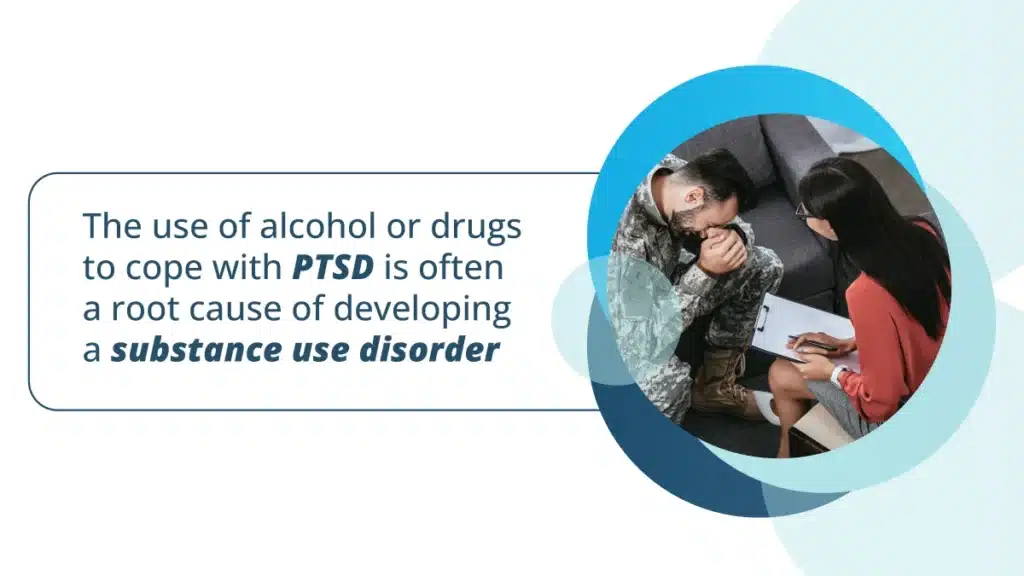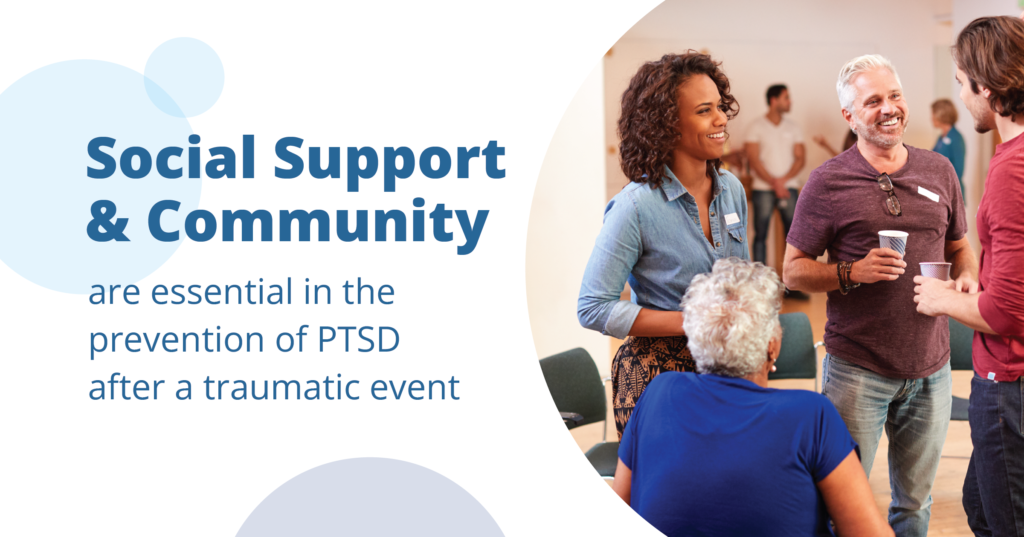Addiction is painful and pervasive. What begins as a means to meet a need or solve a problem takes on a life of its own until it causes significant harm. Many people who struggle with addiction have co-occurring disorders, including depression, anxiety, and post-traumatic stress disorder (PTSD). The nature of the work of military service members and veterans puts them at risk for these co-occurring disorders, which puts them at a higher risk of developing an addiction. Numerous causal factors could lead to a substance use disorder. This article explores four causes that occur with military personnel.

1. Combat Exposure
Many veterans have risked their lives, sustained a significant injury, or have witnessed these things happen to their fellow soldiers in combat. The symptoms below are a natural response to these kinds of events. If you experience the symptoms below and they persist beyond a month after the traumatic event, you may have post-traumatic stress disorder. These symptoms include (but are not limited to):
• Flashbacks, nightmares, and unwanted memories
• Dissociation
• Intense psychological and physical distress when reminded of the trauma
• Avoidance of distressing memories or external reminders of the event
• Trouble remembering the event
• Feeling negative about the world, people, or oneself
• Reduction in activities one used to enjoy
• Feeling angry or irritable often
• Being hypervigilant with a strong startle response
• Trouble concentrating and trouble to sleep
• Engaging in high-risk behaviors
The symptoms of PTSD can reduce your quality of life. It’s painful to experience the world in this way, and you may find that you’ve turned to alcohol or drug use to cope with this pain. For example, some veterans found that they developed an addiction when they overtook sleeping pills to help them sleep. Others inadvertently engaged in alcohol abuse to help take their mind off painful memory. Other veterans found that they became biologically addicted to pain medications to help them with their injuries, while others turned to stimulants to feel again after dissociation or feeling numb. The use of alcohol or drugs to cope with PTSD is often a root cause of developing a substance use disorder.
2. Grief
When you’ve served in combat, you’ve faced losses that are difficult to grasp. You may have a lifelong injury that has changed the trajectory of your goals. You may have lost a fellow brother or sister in combat or witnessed their major life-changing injury. Although the service does its very best to prepare its soldiers for the psychological impact of war, after going through the experience you may have experienced an unexpected worldview shift related to the brutalities of the human experience. There may be a loss of hope or innocence, an awareness of malevolence in the world that you were not aware of before.
Grief is a process that involves surviving what was lost. It takes time, involves multiple mixed emotions, and puts you head-to-head with your own powerlessness. To gain freedom from your grief, or to alter a painful reality, you might have turned to drugs or alcohol. The drugs or alcohol may have provided temporary relief; however, addiction can develop when drugs or alcohol are repeatedly used as a primary means to manage your grief.
3. Deployment & Relocation
Even though you are aware upfront about the long gaps of time you will spend away from your family, being away from those you love can take its toll. The experience can lead to loneliness, or it may lead to stress within your most important relationships. You may experience sadness when you miss major milestones in the lives of your children, even when you and your loved ones understand that this comes along with the work you do.
Relocation assignments mean that you will move away from the community you had previously been a part of. Some have coped with these changes by not getting too close to new people in their current location because of the inevitable relocation. In this case, drugs or alcohol can help to cope with the loneliness that can emerge. Others have used alcohol to feel socially comfortable around new people. Therefore, loneliness is mitigated but at the risk of developing an addiction in the process.

4. Social Disapproval After Returning From Combat
One of the greatest factors in preventing PTSD after a traumatic event is social support. After a trauma, it is ideal to be surrounded by a community that builds you up, helps you to make meaning of your experiences, and guides you through the process of healing. However, many veterans experience anger and disapproval from community members for their combat role. This was especially common after soldiers returned home to the United States after the Vietnam War.
Some veterans have been the targets of civilians who took out their frustrations with the war on the returning soldiers. This sense of bewilderment and social isolation can lead to increased trauma and high-risk behaviors to cope with, such as the misuse of drugs and alcohol.
How to Know if You Struggle With Addiction
If you relate to the following list below, you might have a substance use disorder:
• You take a substance in larger amounts or longer than you meant to (such as binge drinking), and you have difficulty cutting back even when you want to.
• You spend a significant amount of time seeking, using, or recovering from the substance.
• You crave the substance, have built a tolerance around it, and experience withdrawal when you do not use it.
• You have had trouble professionally, socially, and in your relationships as a result of using the substance or because of the effects of the substance.
• You continue to use the substance when you know that it has caused you physical or psychological harm.
Adjusting to civilian life after the military can be a challenge. If you are a veteran and you struggle with addiction, there are treatment options available to you. There are treatment programs designed specifically for veterans with PTSD where you can find the exact kind of addiction treatment you need. Contact Haven Detox today.






